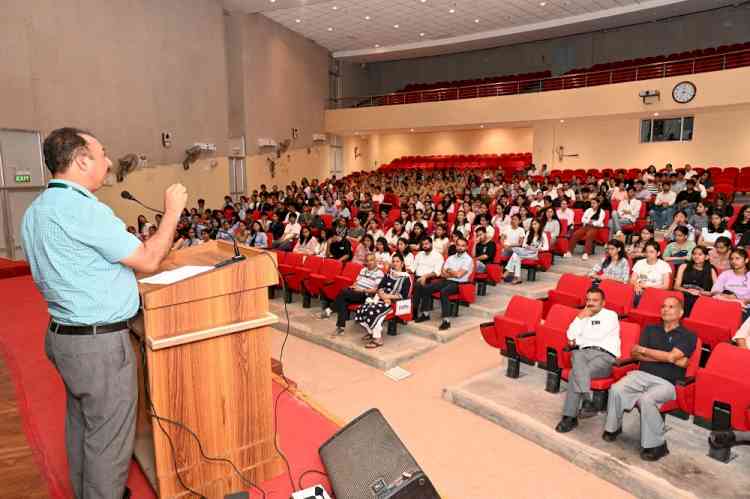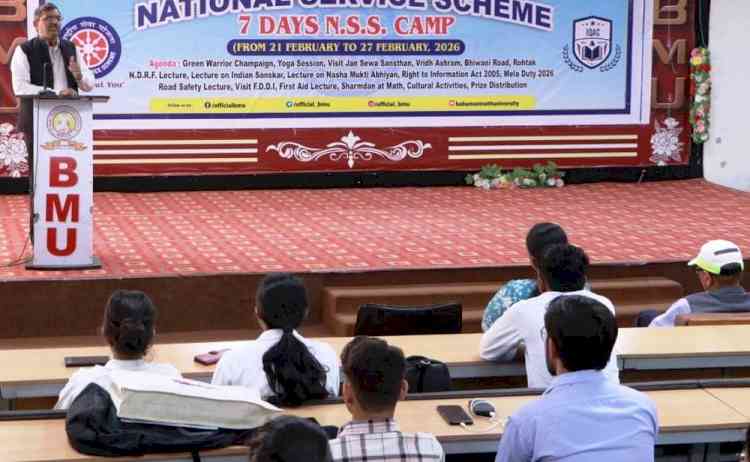Lifestyle change can help to conserve Ozone layer
The Department of Environmental Science, Dr. YS Parmar University of Horticulture and Forestry, Nauni celebrated World Ozone Day-2023 on the theme ‘Montreal Protocol: Fixing Ozone Layer and Reducing Climate Change’ at the University campus on Saturday evening. The event was held in collaboration with NAHEP Institutional Development project and saw the participation of over 450 UG students and SPACE club members of the Department of Environmental Science.

The Department of Environmental Science, Dr. YS Parmar University of Horticulture and Forestry, Nauni celebrated World Ozone Day-2023 on the theme ‘Montreal Protocol: Fixing Ozone Layer and Reducing Climate Change’ at the University campus on Saturday evening. The event was held in collaboration with NAHEP Institutional Development project and saw the participation of over 450 UG students and SPACE club members of the Department of Environmental Science.
Dr SK Bhardwaj, Prof & Head & convener pointed out that Ozone Day 2023 is being celebrated to raise awareness about the Ozone layer’s importance and how our activities are leading to the depletion of the natural shield. The day also commemorates the international Montreal Protocol which established a mandatory schedule for phasing out ozone-depleting substances. Dr Bhardwaj lauded the dramatic and measurable differences brought by this universal treaty which inspired the world to get together to avert the worst of climate change and build a sustainable resilient world.
Dr. C L Thakur, Dean, College of Forestry emphasized that the ozone layer shields us from harmful ultraviolet rays but human activities effectively punched an ozone hole in Antarctica leading to an increase in ultraviolet rays that reach the earth's surface and rise in melting of ice. The production and consumption of these ozone-depleting substances is more due to human activities as natural causes such as sunspot, volcanic eruptions and forest fires only contribute about 2-3%. Chief Guest Dr Inder Dev, Director of Extension Education pointed out that increasing population pressure from the 15th century only 45 crores increased to 800 crores in 2023 and changes in the lifestyle of the society are reasons for the increase in ozone-depleting substances. He added that the weakening of the ozone shield has exposed millions worldwide to problems like skin cancer and other diseases. He called for amending lifestyle and day-to-day activities to reduce the ozone-depleting substances in the atmosphere.
A declamation competition was also organized in which Mehak Manta, fourth-year student of B.Sc Horticulture bagged the first prize. Siya Sharma and Chetna stood second and third respectively. The faculty and staff of the department also participated in the event. A rally to create awareness for phasing out ozone-depleting substances was also organized.



 City Air News
City Air News 










